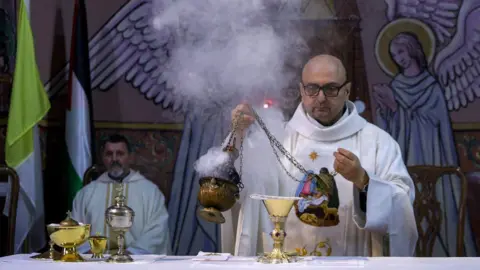New Research Aims to Predict santorini VolcanoS Next Eruption
SANTORINI, Greece — The picturesque island of Santorini, famed for its stunning white-washed villages perched atop dramatic cliffs, attracts millions of tourists each year.However, beneath this idyllic facade lies a potentially devastating secret: an active volcano simmering beneath the Aegean Sea.
Now, an international team of scientists is embarking on a groundbreaking mission to assess the true danger posed by Santorini’s underwater volcanic activity adn to better predict the potential for future eruptions.
Just weeks ago, seismic activity rattled the island, prompting nearly half of santorini’s 11,000 residents to flee. The earthquakes served as a stark reminder of the volatile tectonic forces at play beneath the popular vacation destination, where the African and Eurasian plates meet.
Aboard the British Royal Research Ship Discovery, researchers are employing cutting-edge technology to study the caldera, the vast crater formed by an ancient, cataclysmic eruption that shaped Santorini’s iconic horseshoe shape. the research is focused on the hydrothermal vents surrounding the volcano, cracks in the Earth’s crust on the seafloor that release superheated water and gases.
“It’s a bit like ‘out of sight, out of mind’ in terms of understanding their danger, compared to more famous ones like Vesuvius,” said Professor Isobel Yeo, a submarine volcano expert, wiht Britain’s National Oceanography Center, underscoring the relative lack of attention given to underwater volcanoes compared to their terrestrial counterparts. Yeo leads the Discovery mission,which includes 22 scientists from around the world.
The team is using a remotely operated vehicle (ROV),a car-sized robot,to descend to depths of 300 meters (nearly 1,000 feet) to collect samples of fluids,gases,and rocks from the hydrothermal vents. Thes vents transform the seabed into an otherworldly landscape of orange-hued formations and plumes of gas. The analysis of these samples could provide critical insights into the volcano’s activity and potential for eruption.
One of the key questions the scientists are trying to answer is whether the interaction between seawater and magma within these hydrothermal systems makes a volcano more or less explosive. The composition and behavior of these underwater vents remain largely unknown, with Yeo noting, “We know more about the surface of some planets than what’s down there.”
Santorini’s most recent eruption occurred in 1950, but a period of unrest in 2012, during which magma flowed into the volcano’s chambers and caused the island to swell, demonstrated the ever-present threat.The research is especially relevant in light of recent events, such as the 2022 Hunga Tonga-Hunga Ha’apai eruption in the Pacific Ocean. That underwater explosion ranked as the largest ever recorded and triggered a tsunami that reached the Atlantic, with shockwaves felt as far away as the United Kingdom. The devastating impact on nearby islands in Tonga, some of which remain uninhabited to this day, highlights the destructive power of submarine volcanoes.Along with studying Santorini’s caldera, the Discovery is also venturing to Kolumbo, another major volcano located just 7 kilometers (4.3 miles) northeast of the island. While an imminent eruption is not expected at either location, scientists emphasize that it is indeed only a matter of time.
professor Paraskevi nomikou, a geologist from Santorini, is part of the government emergency group that met daily during the recent earthquake crisis. She is particularly invested in translating the research findings into practical measures for the local community.
“This research is very important because it will inform local people how active the volcanoes are, and it will map the area that will be forbidden to access during an eruption,” said Nomikou, whose childhood experiences with earthquakes and eruptions inspired her career.
The data collected during the expedition will be used to create detailed geohazard maps for Greece’s Civil Protection Agency. These maps will identify areas at greatest risk during a potential eruption, helping local authorities prepare and respond effectively to future volcanic events. This work will help forecast potential hazards arising from underwater volcanoes globally, said Yeo.
Her
Predicting Santorini’s Next Eruption: An Interview with Dr. Elara Vrontou, Volcanologist
Archyde News brings you an exclusive interview with Dr. Elara Vrontou, a leading volcanologist specializing in submarine volcanic activity. We dive deep into the ongoing research aimed at predicting future eruptions in the santorini region, a critical endeavor for the safety of locals and the millions of tourists who visit this iconic Greek island annually.
the Risks of Santorini: An underwater Volcano
Archyde News: Dr.Vrontou, thank you for joining us. Could you start by explaining the unique challenges involved in studying an underwater volcano like the one beneath Santorini?
Dr. Vrontou: Thank you for having me. The primary challenge is accessibility. Unlike terrestrial volcanoes, we can’t simply hike up and take samples.We use remotely operated vehicles (ROVs) like those deployed by the team on the research ship Discovery. This means navigating deep underwater, collecting samples from hydrothermal vents, and gathering data in a very remote surroundings.
Unveiling the Secrets of Hydrothermal Vents
Archyde News: The research focuses heavily on hydrothermal vents. Why are these features so critical to understanding the volcanic activity?
Dr. Vrontou: Hydrothermal vents are essentially cracks in the Earth’s crust where superheated water and gases are released.They’re like windows into the volcano’s inner workings. Analyzing the fluids and gases from these vents – their chemical composition, temperature, and flow rate – gives us crucial insights into the behavior of the magma chamber and potential for an eruption.
The connection Between Magma and seawater
Archyde News: One of the key questions, as we understand it, is whether the interaction between seawater and magma makes a volcano more or less explosive. Could you elaborate on this?
Dr. Vrontou: It’s a crucial aspect of our research. The presence of water substantially impacts volcanic eruptions. When magma interacts with water, it can lead to highly explosive events. Understanding the specifics of this interaction within Santorini’s volcanic system is critical for predicting future eruption styles and intensities.
Data and Prediction: Informing Local Communities
Archyde News: How will this research translate into practical measures for the people of Santorini?
Dr. Vrontou: The data collected will be used to create detailed geohazard maps. These maps will identify areas most at risk during a potential eruption. This details will be crucial for the Greek Civil Protection Agency to prepare and respond effectively, including evacuation planning and establishing safety zones. The goal is to give local authorities actionable intelligence to protect the community.
Looking Beyond Santorini
Archyde News: Beyond Santorini,what broader implications does this research hold for volcanology globally?
Dr. Vrontou: The lessons we learn here can be applied to other submarine volcanoes. The research on Santorini offers a unique opportunity to gain deep insight into underwater eruption cycles, with the potential to create safer, more accurate prediction models for global volcanic activity, and inform safety measures around the globe. What we learn is incredibly relevant to similar regions around the world.
A Question for Readers
Archyde News: Considering the devastating impact on the pacific region with the Hunga Tonga-Hunga Ha’apai eruption, what key questions do you think more research needs to answer about submarine volcanic activity?
Dr. Vrontou: Precisely.What specific technology can expedite research in this area, and what more can we do to ensure the safety of local communities in the face of the volatile nature of our planet?







